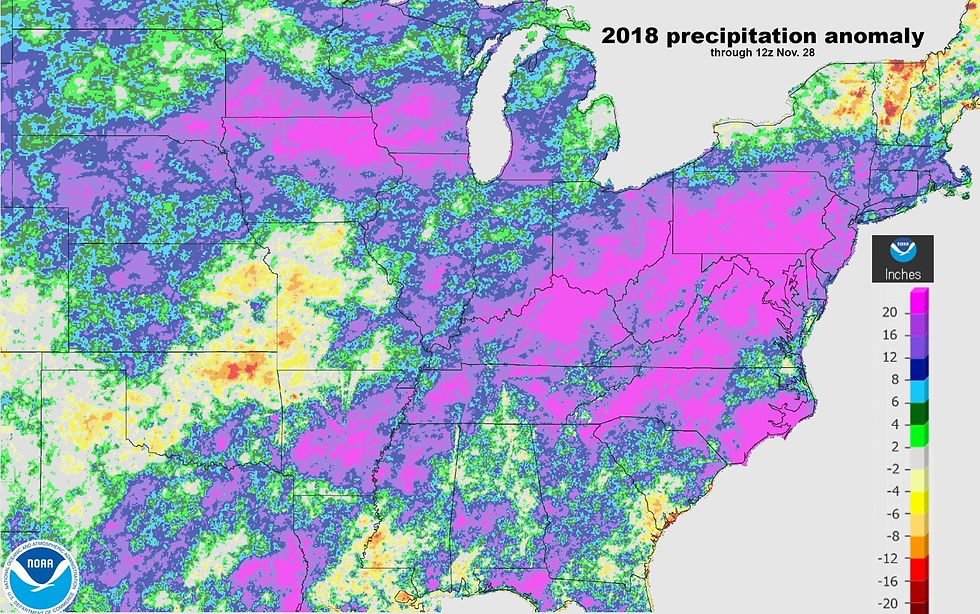Managing Invasive Species
- Apr 19, 2017
- 2 min read
Invasive plant species, when introduced to an ecosystem aggressively establish themselves at the expense of native plants. They can have a negative effect on natural ecosystem function and native plant community diversity. EQR incorporates integrated pest management (IPM) principals to treat a wide range of invasive species. Commonly, we see and develop a management control programs for Phragmites, Knotweed, Bamboo, Mile-a-Minute vine, Multi-flora rose, Lesser Celandine and Kudzu, to name a few.
Often, the management approach involves both mechanical and chemical methods, depending on the species, their growth habits and other site specific concerns. Treatment approaches can vary from species to species. The time of the year, the chemical which is used, the frequency and the application rate are all factors to consider in a management approach. When we are designing a control plan, we attempt to minimize the use of chemicals, recognizing their potential for unintended effect on adjacent native species. Once the invasives are under control or minimized, we typically plant native species to establish a self-sustaining ecosystem. This is usually an on-going process and requires frequent observations.
The areas we work in are quite varied, such as parks, developments, stream corridors, along shorelines and storm water management ponds. A local neighborhood developer, EYA, who has introduced more than 4,000 area homeowners to modern urban lifestyles has contracted with EQR on several invasive control projects in their developments. One example we have worked on for the last few years is Grosvenor Heights in Montgomery County, MD. Invasive wisteria vines had created a monoculture in a particular woodland section of the development. In 2015, EQR used a bobcat with an ambusher head attachment to mow down the wisteria, then once re-growth appeared we applied Garlon® (recommended for woody plants) to the remaining stems. We have almost completely eradicated the wisteria and have plans to establish native trees and shrubs to where the wisteria was once dominant. We have enjoyed working with MNCPPC’s Forester Stephen Peck and EYA’s Land Development Manager Daryl Thomas. The tree and shrub species were chosen by the county Forester, Mr. Peck and will be installed in November 2017.
Contact EQR
EQR has been licensed pesticide applicator in Maryland for over 20 years. We are also licensed in Virginia and in both states we develop invasive species management plans. Visit us online or give us a call at (410) -923-8680 to get more information and see if we are what you’re looking for. Looking to see what we are currently working on and more about our company? Follow us on Facebook, Instagram, LinkedIn, Twitter, and YouTube!

















Comments